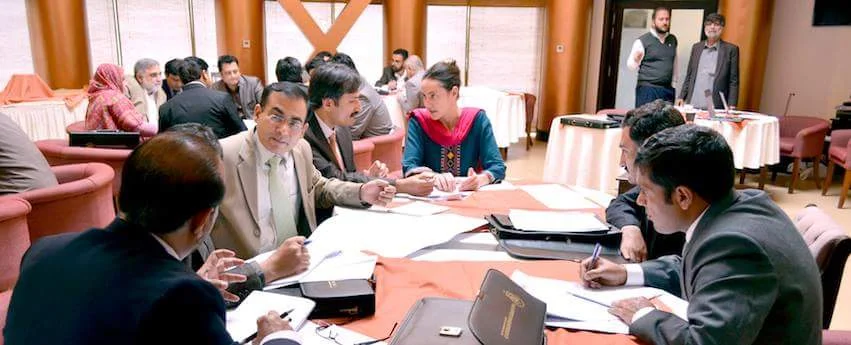Participatory Problem Solving
The Legis Approach
Legis’s services, courses, tools, and programs are guided by our Participatory Problem Solving approach. Our approach is grounded in the institutionalist legislative theory originally articulated by Ann and Robert Seidman and refined by decades of practical experience and applied research carried out by Legis’s founders and our partners around the world.
This approach is based on the premise that since law exists to solve problems, the value of a law is not determined by how it looks in the books, but by how it functions on the ground. In order to be effective, a law must address the causes of problematic behaviors and it must be designed to operate in the face of existing resources and constraints.
For instance, if the law will not work without funding, and there is no funding available to implement the law within a given jurisdiction, then the law is not a good law for that jurisdiction. If the existing law looks logical and comprehensive, but is not being implemented well due to corruption or inefficiency, then it is important to critically review the law to see where the law gives implementing agency officials opportunities, and perhaps even discretion, to act in a corrupt manner.
When a law adequately addresses the causes of problematic behaviors, then we can predict that people will act in accordance with the law. However, if a law fails to address the causes of problematic behaviors, or is poorly communicated, people will fail to act as the law commands.
The Seidman theory suggests a four-step approach to solving problems: (1) Describe the problem in behavioral terms, (2) explain the causes of these behaviors, (3) formulate solutions, and (4) monitor and evaluate.
Our refined Participatory Problem-Solving (PPS) approach provides a unifying framework for solving complex, pressing, persistent, and emerging societal problems. PPS provides a common language and methodology that elected representatives, civil servants, stakeholders and issue advocates can use to assess institutional functioning and to design laws, policies, and programs that address the causes of societal problems.
At each step of the process of Participatory Problem Solving, Legis offers services, courses, tools, and programs to support each of these participants in the process.


